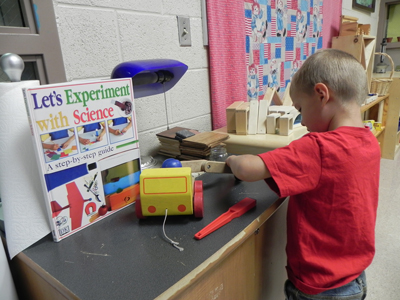Northern Arizona University’s College of Education is bringing together educators, caregivers and administrators to reshape the educational experience for children between birth and third grade.
The Early Learning Communities initiative, which began last year with the award of a $300,000 two-year grant from the Helios Foundation, already has left its mark on the community.
Kathy Brown, NAU program director and liaison for the initiative, and Pamela Powell, NAU associate professor of education and lead faculty member on the initiative, worked closely with the Flagstaff Unified School District and other partners to create a community-wide plan that established earlier contact between the schools and the families of children entering kindergarten.
“Starting kindergarten is a big step for children,” Powell said. “The transition plan helps the caring adults around the children ease them into this new environment.”
Based on the success, FUSD took the transition a step further with a pilot program in which teachers conduct in-home visits with families whose children will enroll in kindergarten next year. The school district also is developing a transition plan for children moving from elementary to middle school.
In addition to work on the transition plan, the College of Education hosted more than 70 participants from public, private, faith-based and in-home caregivers and educators in professional development sessions last year. The series of sessions addressed developmentally appropriate practice, quality early childhood environments, and math and science literacy.
The second year of the grant will focus on educating and assisting children with special needs, professional development and effective practice, and integrating science, technology, engineering and math into early childhood education. Research around the educational and professional development needs of practitioners and caregivers also is being conducted.
“Those who teach and care for young children often do not feel confident and competent in the areas of science, math, engineering and technology,” Powell said. “Helping prepare proficient educators and caregivers is important because we ultimately need more graduates at the university level in these disciplines, and children receive their foundations in these areas in early childhood.”



